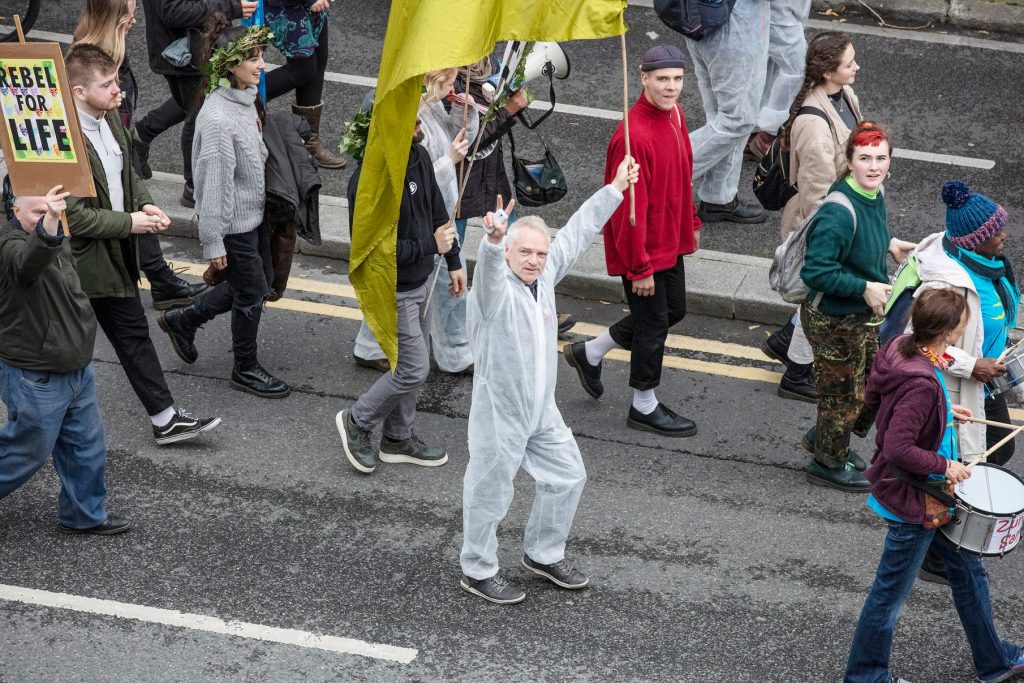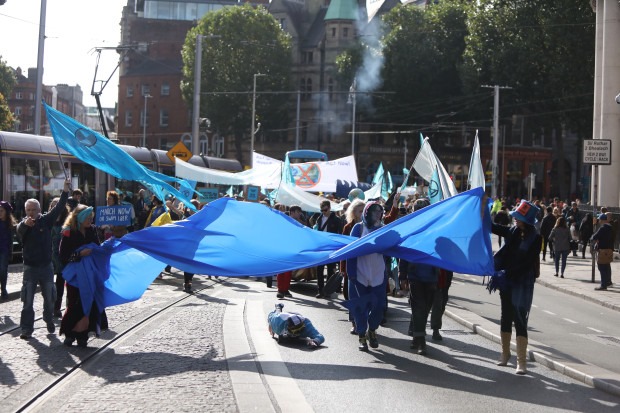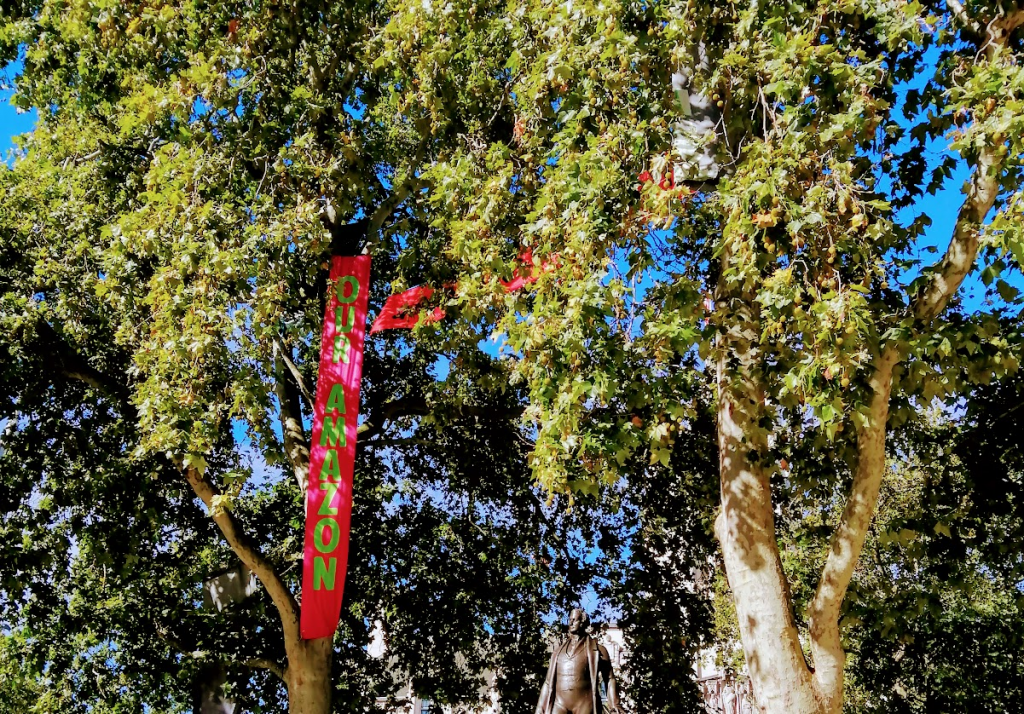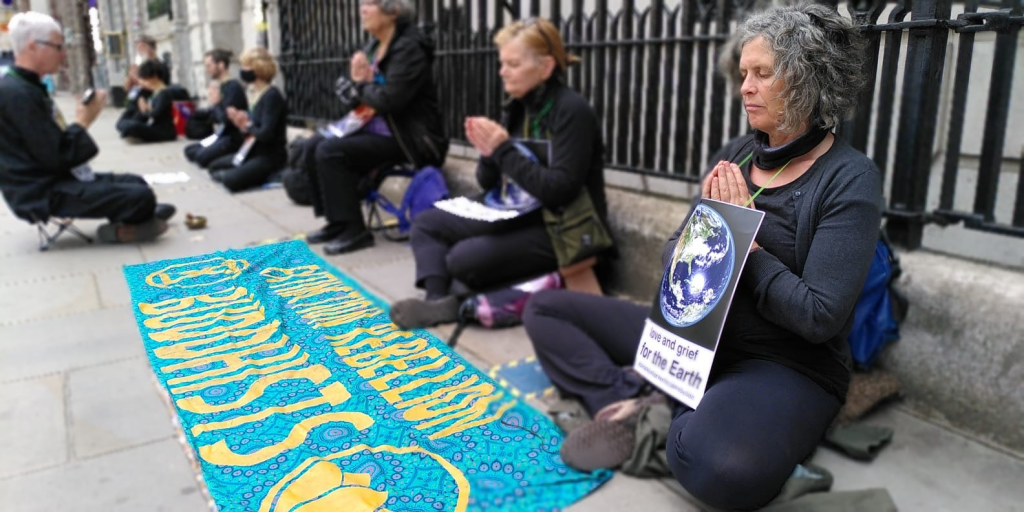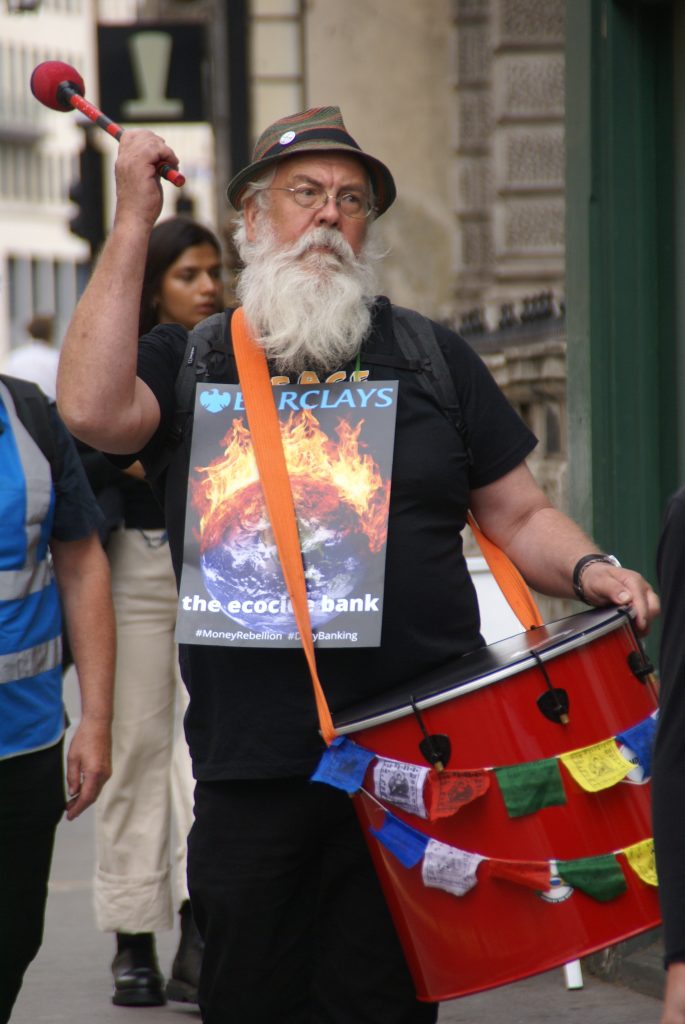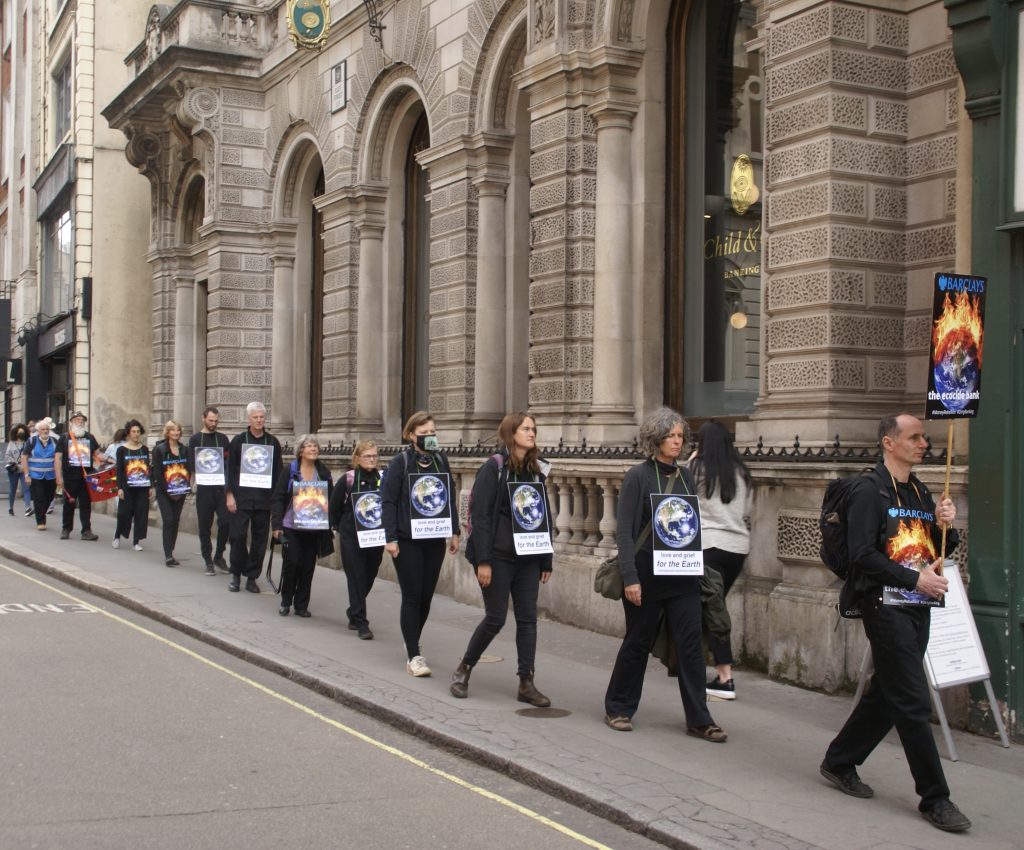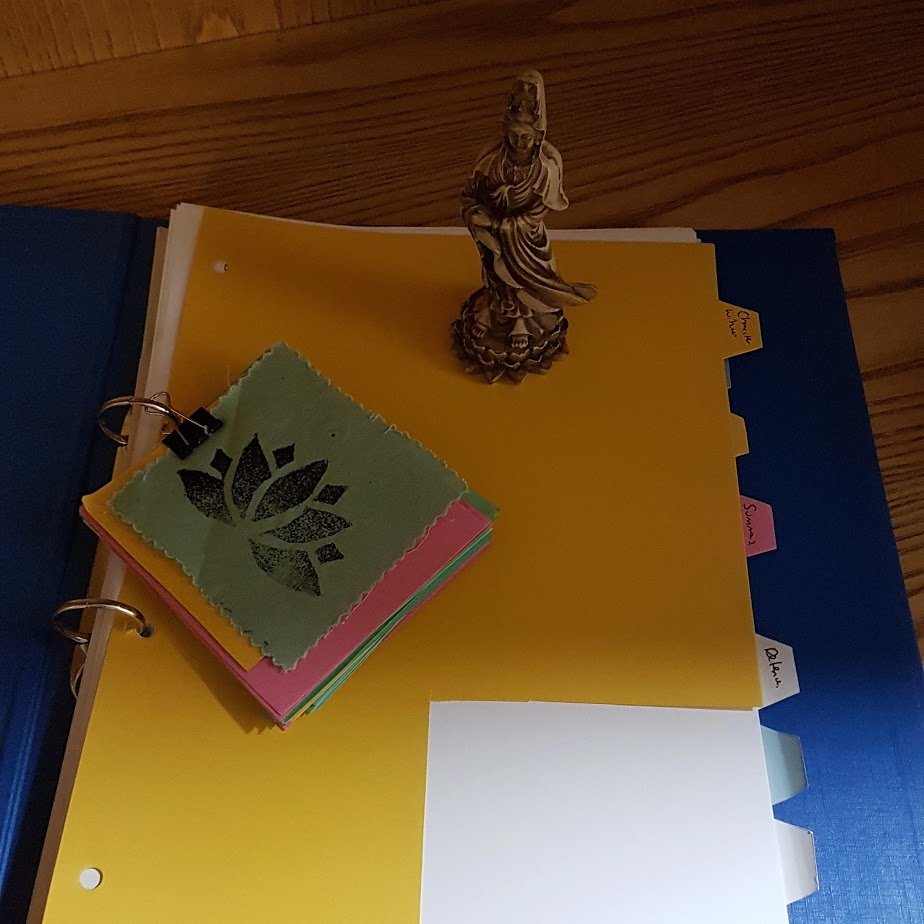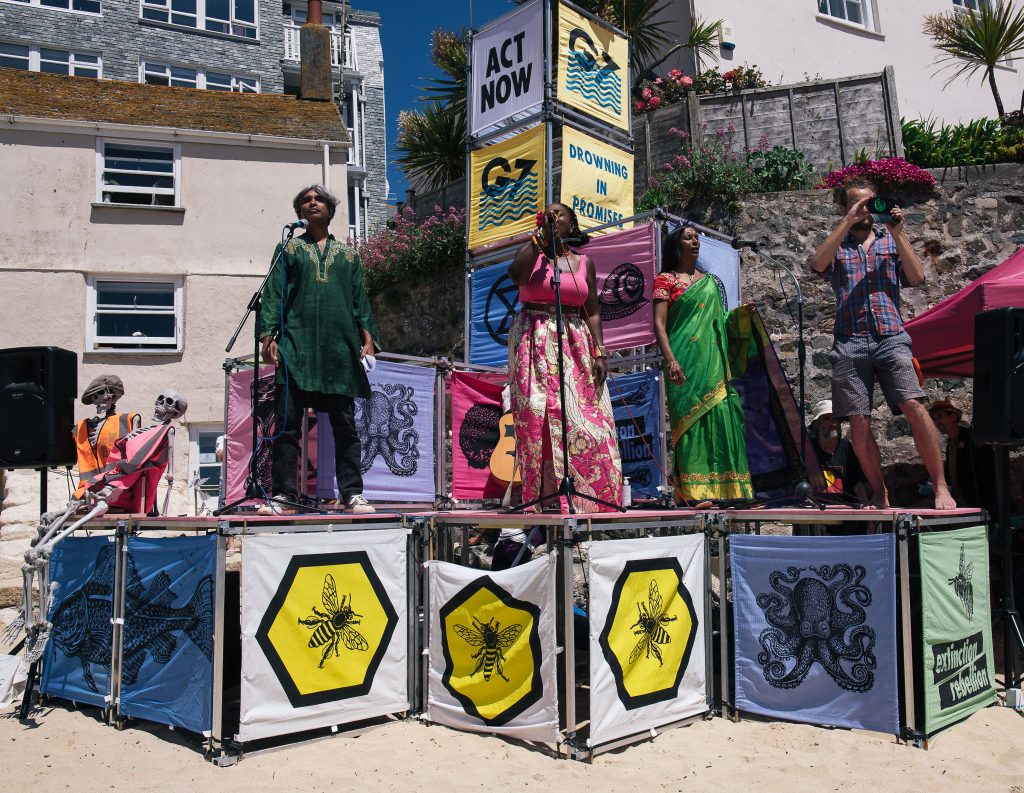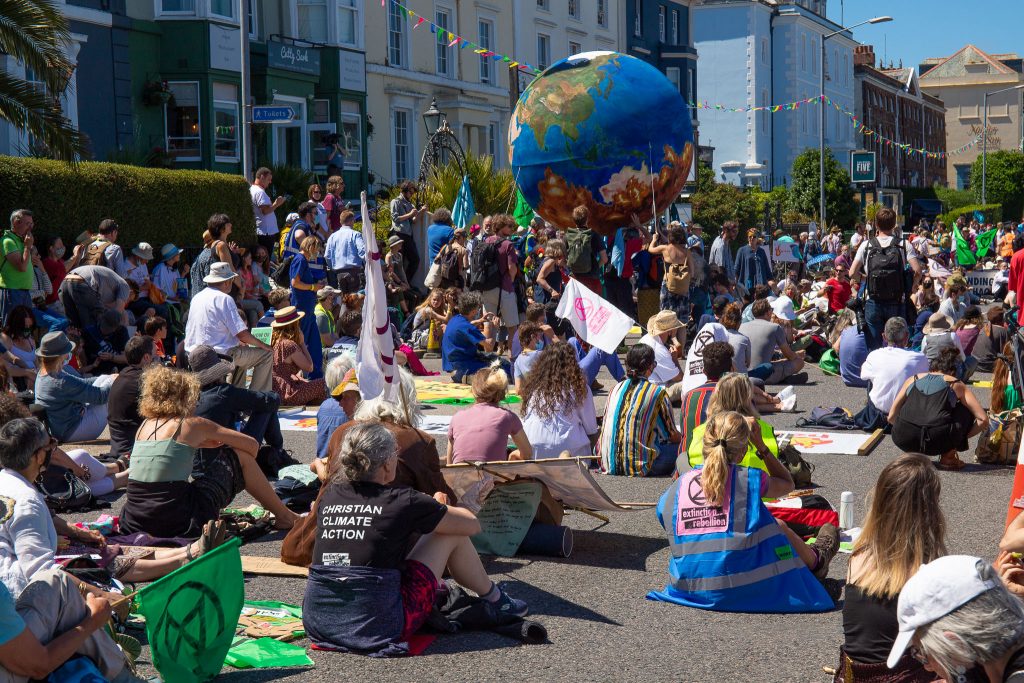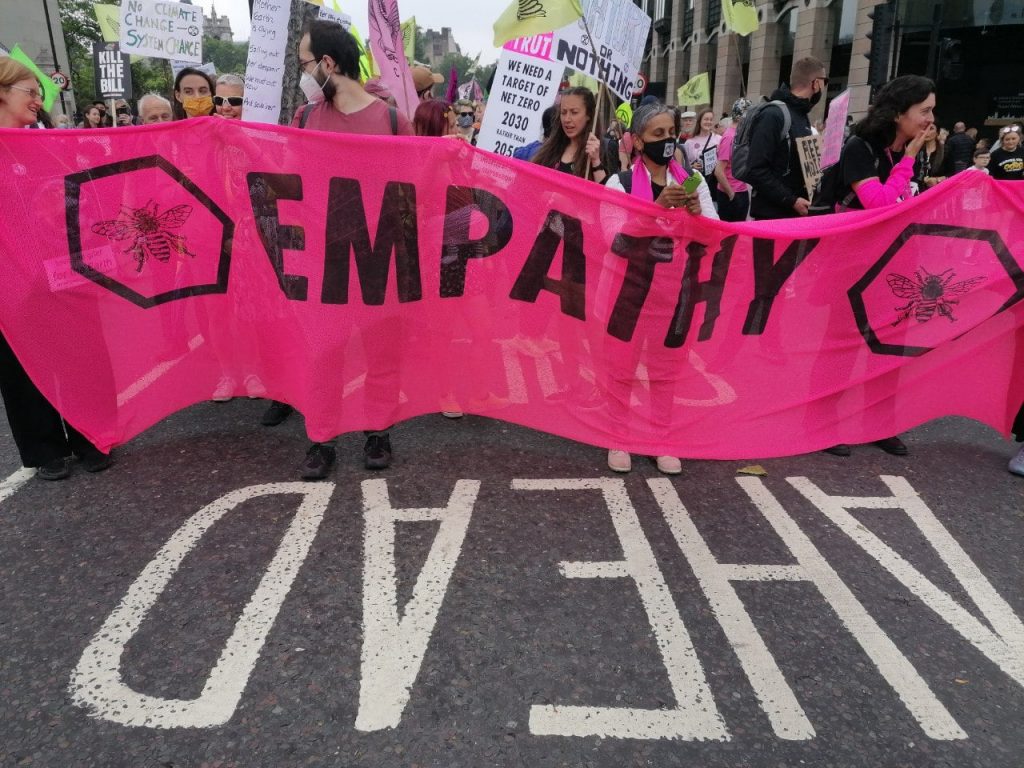Being Married to a Career Criminal
or Watching the Impossible Rebellion from Afar
By Kaspa Thompson
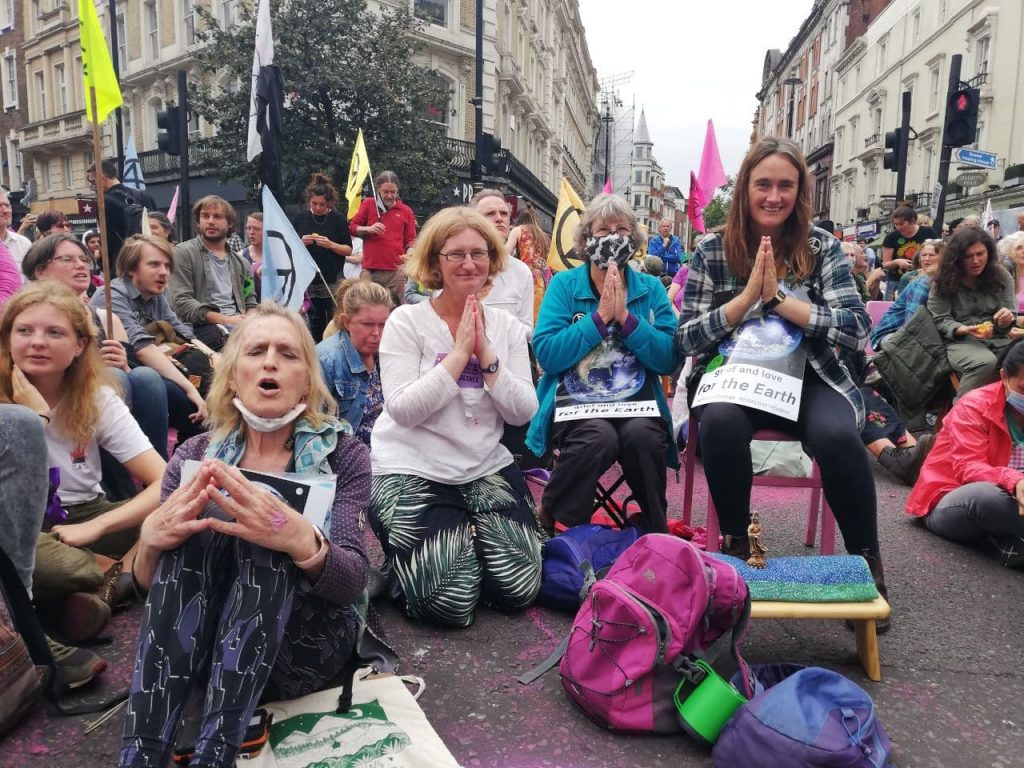
Satya was released from a police cell yesterday afternoon, after her fifth arrest for climate protesting. This week she’s marching, singing and sitting in the road with thousands of others in London for Extinction Rebellion’s Impossible Rebellion.
I’m here in Malvern, walking the dogs, seeing my clients, running practice sessions at the temple and sharing videos and pictures of the Impossible Rebellion online.
On Monday I spent an hour and a half working out the subtitling software to add words to a two minute video that Joe sent me first thing that morning. I was keeping one eye on social media for news of the Rebellion. Satya hadn’t taken her phone into the city and was expecting to get arrested first thing.
I’ve been to a London Rebellion before, as well as to actions in other places (like the G7 demonstrations in Cornwall). I’ve been arrested once, and I know that there are Rebels looking out for you when that happens. I know that someone from XR will meet you when you’re released from the police station at any time of day or night. I trust the other people there, and I trust Satya and still there was an anxiety in not knowing what was happening.
When Satya went to her first Rebellion in London in October 2019 I was again at home. That week I was glued to live-streams on social media, frantically trying to work out what going on. I was a novice rebel then, with no in the street experience and no way of imagining what it was like to be there.
That year I was massively affected by all the negative comments on social media. It was distressing to read them all, I became fraught and I carried on reading them.
This year they’ve hardly affected me at all. What’s changed? Two things: one, I have had on the ground experience at Rebellions and while I’ve been out in the streets the majority of ordinary people were supportive (we received a very warm welcome into St. Ives earlier in the year, for example); and two that the climate crisis has become so obvious and the effects of extreme weather so profound that it is simply impossible for me to do nothing and maintain any sense of integrity.
Both of those reasons made it a little easier to not know what was unfolding for Satya as well. At lunchtime on Monday I got a text from a stranger’s phone. They said Satya was fine and hadn’t been arrested. Later that afternoon there was another text from a different phone, Satya was sitting in the road and expecting to be arrested soon. Then there was no more news until yesterday morning. As soon as I woke up I saw the message on my phone: Satya was arrested at 9pm and checked into the station at 2am, she would probably be out in the afternoon.
When I got a message from Satya herself yesterday afternoon there was a big sense of relief. I released a breath that I hadn’t realised I was holding in until that moment. That relief was followed by a surge of pride and of not optimism exactly, but a feeling of being pleased to be part of a movement that is trying to create change.
My heart feels full when I think of all the rebels in London, and especially when I think of the XR Buddhists, taking their practice out into the world. I’m looking forward to seeing them in person on Sunday, and I’m looking forward to continuing to act.
There’s a slogan I see flying on flags at XR demonstrations, “Deeds not words.” It comes from Emmeline Pankhurst and is often used by XR’s FINT* community. It’s often aimed at world leaders, but I have taken it to heart myself. Sometimes taking action eases my despair, sometimes taking action gives me hope that things can change for the better and it always leads to a sense of greater integrity and greater embodiment of my Buddhist practice. In the face of such suffering, how can we do nothing?
*Female, Intersex, Non-binary and Trans
Kaspa Thompson is a Buddhist Teacher, psychotherapist and currently co-coordinator of XR Buddhists.
Being Married to a Career Criminal Read More »

